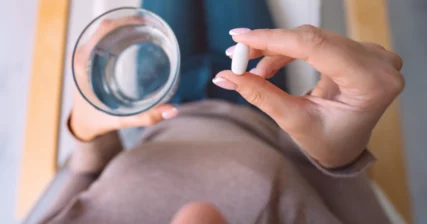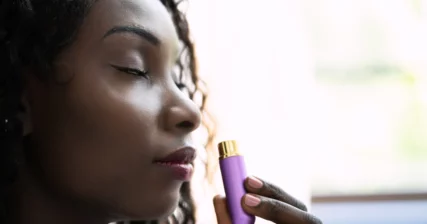Listen on: Apple Podcasts | Spotify
Throughout the p(l)andemic, men have consistently fared worse than women. They’ve ended up in the hospital more often, and have died more frequently.
Until recently, many “experts” believed the difference between the sexes came from women’s higher estrogen levels and men’s higher testosterone levels.
Recent research debunks that idea. In fact, it seems that low testosterone in men, not high testosterone, significantly increases the risk of severe COVID-19 cases.
The Low Testosterone Problem
Low testosterone levels in men was a growing problem long before the COVID-19 Circus. Fifteen years ago, research showed that 39% of U.S. men, age 45 and older, were testosterone-deficient.
Since then, stress has only increased, more men deal with sleep debt, fewer men eat meat or strength train, more men live on statins, and few take good nutritional supplements.
Poor nutrition, insufficient sleep, obesity, a lack of strength training or physical work, low vitamin D levels, a reduction in meat consumption, and other factors have contributed to plummeting androgen levels.
Though it’s relatively easy to optimize testosterone levels, most men seem to ignore the obvious symptoms, such as moobs, a lack of sex drive or morning erections, or the ambition and drive that helps men to “man up.” Sadly, few doctors proactively measure their male patient’s testosterone as part of a standard check-up.
Low Testosterone, High COVID-19 Risk
Though the mechanism isn’t fully understood, evidence indicates that testosterone protects men with COVID-19.
As stated in one paper,
Studies carried out both in animals and humans have shown that hypogonadism is associated with increased pro-inflammatory cytokines and that testosterone treatment reduces IL-1β, IL-6, and TNF-α.
Geoffrey Hacket and Michael Kirby
Low testosterone predicts worsening symptoms, even when men start with mild COVID-19 symptoms.
As we’ve seen, severe cases have hit more middle-aged men as time has gone on. We’re not talking about plague-like numbers, but it’s clear that some younger men can succumb to COVID.
We also found that those men with COVID-19 who were not severely ill initially, but had low testosterone levels, were likely to need intensive care or intubation over the next two or three days. Lower testosterone levels seemed to predict which patients were likely to become very ill over the next few days.
Sandeep Dhindsa, MD, endocrinologist at Saint Louis University
Men who get hospitalized or die of COVID-19 are more likely to have hypogonadism.
Salonia A, et al. found that 90% of men hospitalized for COVID-19 had hypogonadism. They also found that testosterone levels were “significantly lower in men with greatest need of ICU and highest risk of death.”
Another study showed that low testosterone men needed ventilation more often, and were more likely to die.
One more study showed that hypogonadal men of reproductive age were more likely to be infected with SARS-CoV-2 than men with higher testosterone levels.
Kadihasanoglu, et al. found almost 74% of men with COVID-19 were low in testosterone. They also identified a correlation between low testosterone and longer stays in the hospital.
COVID-19 could suppress testosterone production as well?
While low testosterone levels could lead to a worse outcome from COVID-19, is it possible that COVID-19 could also lower testosterone?
Çayan et al. showed that COVID‐19 could decrease circulating T levels, and lower T levels at baseline were associated with a significantly increased risk in terms of ICU and mortality.
Alonia A, et al.
I experienced a significant drop in testosterone after having COVID as well. Vanessa and I both got COVID-19 the week after Easter, 2021. I had noticeable symptoms for five days, and spent two of those days on the couch, catching up on movies and TV shows.
Up to that point, my testosterone levels had hovered between 1000-1250 ng/dL for about five years straight. I wrote about this in my blog post Essential Oils for Fitness: Research, Anecdotal Evidence, Experimentation.
When I had my testosterone checked in July, it was the lowest it had been in six years at 712 ng/dL. The much-reduced level of testosterone surprised me, as nothing else about my diet or lifestyle changed.
Is low testosterone a cause, or an association?
Clearly, low testosterone in men who get exposed to SARS-CoV-2, increases hospitalization and mortality risk.
But men with low testosterone also tend to be overweight, eat poorly, avoid exercise, get too little sleep, take statins, or chronically use corticosteroids.
It’s possible the conditions that go along with low testosterone cause poorer outcomes. But, it seems that low testosterone is itself an independent risk factor. And, taking action to improve your testosterone also takes care of some of the other risk factors, as well.
I’ve been an advocate for improving testosterone in men for decades now. These findings only add more fuel to the fire.
Would testosterone therapy for low-T men at the beginning of a COVID infection improve patient outcomes? That remains to be seen. I’m sure some proactive doctors in the United States will give it a try, and if they find it to be successful, will then be quickly discredited by the left-wing mob or Big Pharma.
All we know at this point is that higher testosterone levels when you get infected will improve the chances you overcome the illness quickly and with minor symptoms.
If it ever turns out that COVID-19 came from a lab, the fact that it lowers testosterone would only be fitting in today’s anti-masculine culture. Maybe like that was part of the plan all along.
What’s a man to do?
Some men have clear symptoms of low testosterone. They include:
- Significant muscle loss
- Fat redistribution to the arms, chest, and thighs instead of the gut
- Moobs – boobs on males
- Increased emotional sensitivity and reduced drive and ambition
- Absence of morning erections
For many men, though, symptoms only show up after years of living with low testosterone. This is why I can’t stress enough the importance of getting a full hormone panel at least each year, if not every six months.
It should include total testosterone, sex-hormone binding globulin (SHBG), estradiol, dihydrotestosterone (DHT), and a few other hormones.
Your doctor should be willing to order the lab work for you. If not, find a different doctor, or order your own labs. WellnessFX, Quest Diagnostics, Any Lab Test Now, and Everlywell have plenty of options, though I strongly encourage you to order hormone testing acquired through veni-puncture instead of an at-home finger stick.
If you’ve recovered from COVID-19, your lower testosterone levels might surprise you.
If you haven’t had COVID-19 yet, boosting your testosterone now may provide some protection when you do get it.
The next step is to get serious about supporting your testosterone levels.
At a minimum:
- Sleep at least seven hours each night
- Eat a high-protein diet
- Strength train at least four days per week, following a progressive, professionally-designed weight training program
- Take your Foundational Five
- Drop the “Dad Bod,” which over time becomes an estrogen factory
Once you’ve got those down, you can further enhance testosterone production by supplementing with additional zinc, taking certain adaptogens, and having sex more often.
After you’ve remained consistent with the above, if your levels still aren’t where they should be, work with an experienced, integrative medical doctor. He or she might suggest additional steps, such as using HCG, Clomid, or even testosterone therapy. But resorting to drug therapies should only occur after remaining consistent with everything else.
Are there other ways to support your health and reduce the risk of severe COVID-19 infection?
Absolutely. Supplementing with NAC, zinc, quercetin, and vitamin C help support your immune system.
If you live anywhere other than the United States, doctors publicly proclaim that Ivermectin helps as well. Of course, here in the U.S., not even the likes of Joe Rogan can mention using it without Mainstream Media attacking him like he was related to Donald Trump.
At the end of the day, the healthier you are, the lower your risk. And a big part of what maintains a man’s mental and physical health is his testosterone. So, do what it takes to get your balls doing their jobs.
References
Dhindsa, Sandeep, et al. “Association of Circulating Sex Hormones With Inflammation and Disease Severity in Patients With COVID-19.” JAMA Network Open, vol. 4, no. 5, May 2021, pp. e2111398–e2111398. Silverchair, https://doi.org/10.1001/jamanetworkopen.2021.11398.
“For Men, Low Testosterone Means High Risk of Severe COVID-19.” Washington University School of Medicine in St. Louis, 25 May 2021, https://medicine.wustl.edu/news/for-men-low-testosterone-means-high-risk-of-severe-covid-19/.
Salonia, Andrea, et al. “Severely Low Testosterone in Males with COVID‐19: A Case‐control Study.” Andrology, Mar. 2021, p. 10.1111/andr.12993. PubMed Central, https://doi.org/10.1111/andr.12993.
Urology, European Association of. “New Research Shows Men With Low Testosterone Are More Likely to Die From COVID-19.” SciTechDaily, 30 July 2021, https://scitechdaily.com/new-research-shows-men-with-low-testosterone-are-more-likely-to-die-from-covid-19/.
Which Came First: Low Testosterone Levels or Severe COVID-19? 12 July 2021, https://www.medpagetoday.com/meetingcoverage/additionalmeetings/93534.



